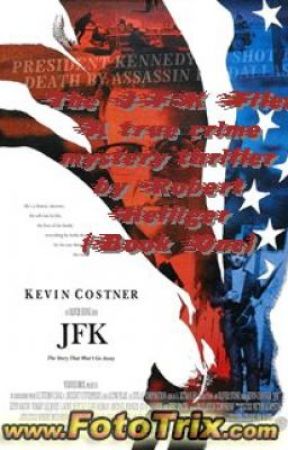~~~Quote: "I am Fidel Castro and we have come to liberate Cuba", unquote, (August 13, 1926-)~~~
I
US President John F(itzgerald) Kennedy was concerned about so few missiles; Russia had four intercontinental ballistic missiles (ICBMs). By October, 1962, the US had increased missiles to go against Castro and Russia.
II
And Kennedy used submarines and tanks to attack Castro. *They were named George Washington and Ethan Allen; George Washington; Lafayette; James Madison; Benjamin Franklin subs were named after US Presidents; the subs all formed a group of US Military vehicles called: "41 for Freedom."*.
III
Georgy Bolshakov, a Russian Embassy Official, messaged US President John F(itzgerald) Kennedy, in which he stated: Quote: "Under no circumstances would surface-to-surface missiles be sent to Cuba", unquote. The "Political games" caused the US President to be incensed at Russia's "interference"; Russia was siding with Castro; Castro sided with Russia. And the "revolving door of political stasis", was irritating for the US.
IV
CIA Director John Alexander McCone, (January 4, 1902 – February 14, 1991), vented his rage at Castro.
McCone, who was Executive Committee of the National Security Council (EXCOMM) head, took over from Allen Welsh Dulles (April 7, 1893 – January 29, 1969); Dulles, a lawyer for Sullivan & Cromwell, was also forced from office as "CIA Director", (because of the Bay of Pigs debacle); McCone took over: The date: November 29, 1961. He didn't want Dulles to have any influence. Because Dulles was a banker, he had had clout. McCone, a San Francisco, California, native, had family working in iron foundries. And a University of California, Berkeley graduate, (1922). He studied Mechanical Engineering. McCone worked for Llewellyn Iron Works, (Los Angeles); he was the "Executive Vice President" of the Consolidated Steel Corporation, (1929), aged only twenty-seven.
McCone sent the infamous "Honeymoon Telegram", (dated: September 19-20, 1962), to the National Intelligence Estimate, (NIE); *McCone did his US Governenment classified work while he and his wife Theiline McGee Pigott, spent private time in Paris, France*. McCone's letter was seen by the CIA, (Central Intelligence Agency), and, within a short period of time, informed President Kennedy about the fact that Russia was sending MRBMs (Medium Range Ballistic Missiles); and IRBMs (Intermediate Range Ballistic Missiles); and MiG-21 fighters; and Il-28 light bombers, as well as proposed thermonuclear bombs, (the ones used in Hiroshima and Nagasaki, Japan in 1945, as revenge of the Pearl Harbor terrorist attacks in 1941), meant that the Opperheimer legacy remained a horrific memory that if America, (and her allies Australia and England), were threatened, America would quote: "Wipe The Enemy off the Earthly Planet", unquote with enough weapons, (both on land and sea), to nullify Castro and Russia.
IV
New York Senator Kenneth Barnard Keating, (May 18, 1900 – May 5, 1975), who famous labelled Robert Kennedy a "Carpetbagger" in 1964, (this in reference to Kennedy beating him-and that he hadn't lived, breathed, and worked in New York), caused a storm in the Kennedy camp a year or so after US President John F(itzgerald) Kennedy's assassination on November 22, 1963, fulled a lot of discontent. Keating worked as a "Ambassador in India and Isreal" from 1973-75, (his death).
He was a graduate at Genesee Wesleyan Seminary, (1915); he also graduated at the University of Rochester, (1919); he was part of The Delta Upsilon Fraternity; and lastly, graduated from Harvard Law School, (1923), aged 23.
V
Keating was a US Army sergeant. He became a Brigadier General, (1948), and left to enter US politics. Keating was a Republican in the House of Representatives. He served 80th; 81st; 82nd; 83rd; 84th; as well as the 85th US Congresses.
Mid way in his career, Keating was in office from January 3, 1947-January 3, 1959; then from January 3, 1959-January 3, 1965, (then taking the Ambassador roles in the early to mid 1970's, ((see above))). In the end, Keating beat prominent New York lawyer and politician Frank Smithwick Hogan (January 17, 1902 - April 2, 1974); Republican Irving McNeil Ives, (January 24, 1896 – February 24, 1962); and unpopular Arizona conservative Republican Barry Morris Goldwater (January 2, 1909– May 29, 1998); Goldwater lost to Texas Democrat Lyndon B. Johnson, (August 27, 1908 – January 22, 1973); Goldwater served a record five terms: 1953–1965; 1969–1987. *Johnson was nicknamed "LBJ", took over as American President after the assassination of US President John F(itzgerald) Kennedy*.
~~~
Page 25

YOU ARE READING
The JFK Files: A non-fiction book by Robert Helliger
Non-FictionThe true story of the 1963 assassination of US President John F. Kennedy. An account of the life and death of one of the most popular politicians our the 20th century by Robert Helliger. Rated PG-13 for some violence, sex references, some coarse lan...
